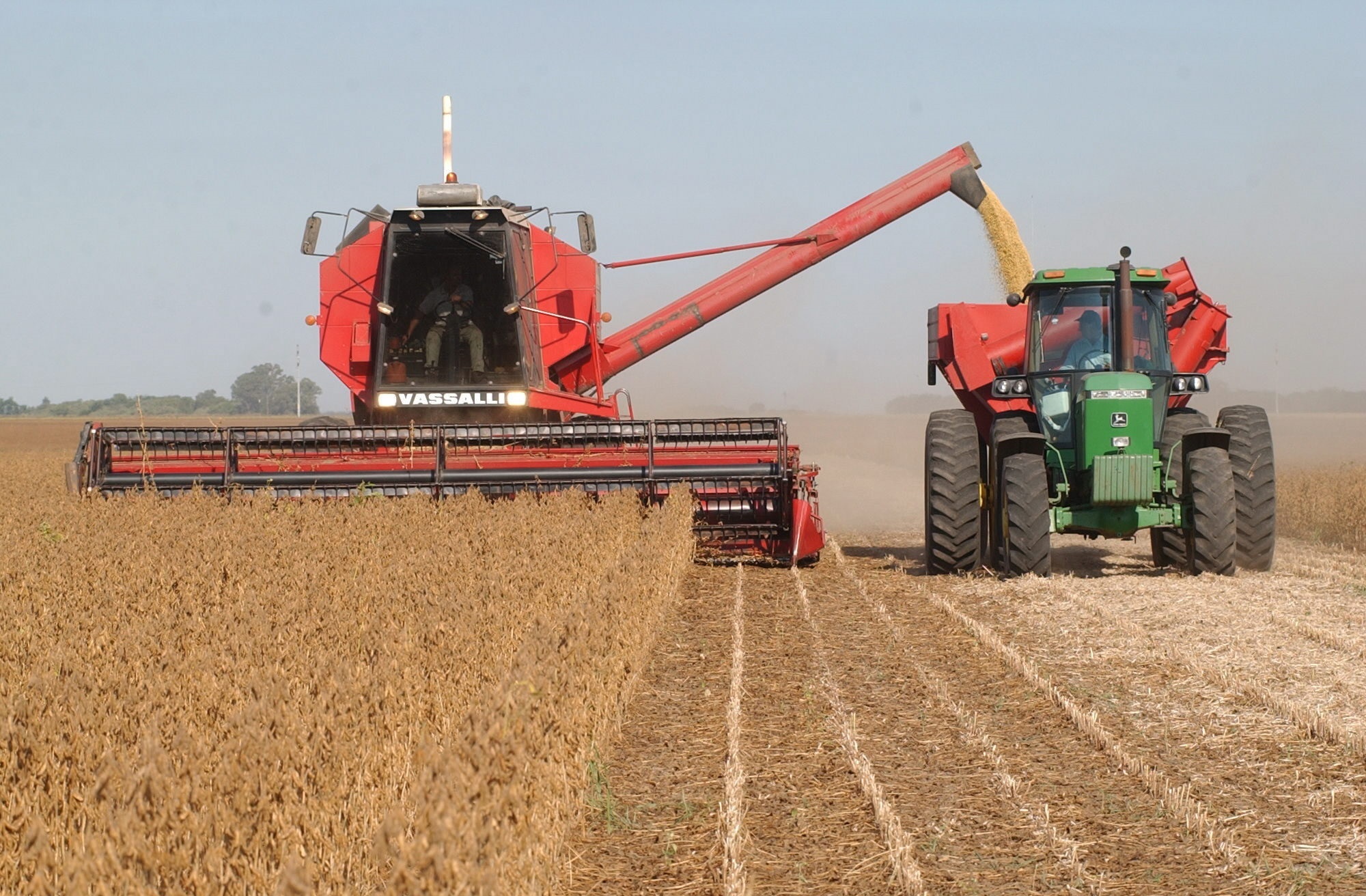
With the aim of lowering inflation in a context of increased pressure from the rise in commodity prices internationally — triggered by the Russian invasion of Ukraine — and to acquire foreign exchange in the context of existing shortages by the Central Bank, the national government is once again challenging and standing on the opposite side of the sector agro-exporter in Argentina. This time after Sunday's announcement in which it announced the decision to suspend the Register of Affidavits of Foreign Sale (DJVE) for exports of soybean meal and oil, among other oilseed tariff positions and, through the possibility of increasing the withholding of these derivatives by 2 percentage points, from 31 to 33 per cent, something that is expected at this time.
In this context, the Government could face a new conflict with the countryside that has already expressed its willingness to mobilize against this and other policies aimed at the sector, which producers say reduce the predictability to develop their business.
“The increase in these retentions is a big contribution to the general confusion. In truth, what would be raised by this means would be 400 million dollars. This measure generates noise with all exports and what happened is going to happen: exports are withdrawn from the foreign exchange market and when that happens all prices collapse,” economist Salvador Distefano told Infobae.
“The producer thinks that if exporters are going to have an increase in withholdings, they will transfer that higher cost and the price of soy will decrease. And as a result, they don't want to liquidate,” he said.
For the specialist, “the government shot himself in the foot” with this strategy since it generates the exporter to run and not participate in the market. In this regard, he assured that “the Government does not know the agricultural sector”.
“Soy and corn prices have risen dramatically. If you plot the prices of these commodities in a series of time and see the future prices at the value of March and November for soybeans, there is an inverse of almost $80. Today soy is worth $630 and as of November it trades at 550 dollars maybe. What does it mean? Which today has a high value because there is a prize that the market pays for all the conflicts that exist, including the drought and the war between Russia and Ukraine.”
For Distéfano, it makes no sense to go out and generate an increase in withholdings today when it is known that the price has as its component a risk premium that may disappear tomorrow. “The Government does not know the international raw material market and the behavior of the exporter and producer,” he said.
The agricultural sector on the warpath
According to a report by the Buenos Aires Grain Exchange, a 2 percentage point increase in oil and soybean meal retentions would have an impact minor from the fiscal aspect. Based on the foreign sales affidavits that have already been issued, revenue could be increased by $425 million, an additional 5% to the total revenue for this crop chain tribute estimated at $9 billion by 2022. Of the total that would be raised extra, USD 265 million would be flour and the remaining 160 million would be oil.
According to the entity, the progress of this type of measures comes despite the fact that in the last month the expected revenue from export duties increased by USD 1.2 billion as a result of the prices driven by the drought and the war conflict between Russia and Ukraine that triggered the price of commodities.

“An increase in the export tax on oil and flour discourages local processing, already affected by the reduced availability of local and imported beans resulting from drought. This effect is also applied to the primary sector, because its capacity to pay is affected”, highlighted the Grains Exchange.
He also stated that from a legal analysis of the World Trade Organization (WTO) agreements it emerged that “the measure of closure of registration would not be justified”, and they also warned that a new modification of withholding rates is impossible without a law of Congress, in accordance with the National Constitution and the confirmation of various decisions of the Supreme Court of Justice of the Nation.
On the other hand, there was a rejection of the agricultural policy being pursued by the Government with the application of export restrictions, withholdings and the almost zero presence of other relevant subsidy and support policies
In this context, the president of the Argentine Rural Society, Nicolás Pino, said that the mood of the sector is “bad”. In this regard, the camp is preparing to mobilize once again against the Government's agricultural policy. Assemblies are already being organized from different sectors of the producer bases. The agricultural sector is already beginning to predict a scenario similar to that of 2008, when the countryside protested against the mobile retention project promoted by Cristina Kirchner's government.
In a brief press release, the Liaison Table yesterday rejected the Government's decision to close exports of soybean oil and flour, and called on legislative forces in Congress to “put an institutional order on export tax legislation.”
The Vice President of Argentine Rural Confederations (CRA), Gabriel de Raedemaeker, proposed from his Twitter account a “pickup to Casa Rosada, urgent”. In this regard, the Cordoba leader argued, that “the idea is to manifest the disagreement that exists throughout the productive environment, and as a way to contain and channel producers a little. The idea of going to demonstrate where Polish and economic decisions are taken or where you think Polish and economic decisions are made, is the right place.”
The Government's position
Economy Minister Martín Guzmán defended on Monday for five hours the agreement with the International Monetary Fund in the Senate and ruled out, after repeated consultations by legislators, an increase in withholding of grain exports.

Asked about the possibility of increasing export duties, Guzmán replied: “There is no commitment made in the context of the program with the IMF on taxes or withholdings. The program sets out a set of commitments and goals, but it is the responsibility of the Government to design and implement a large number of aspects to meet the commitments,” he said.
After a consultation by senator and agricultural producer Alfredo De Angeli, the Minister of Economy said about the possibility of increasing withholding that “the (international) situation is harsh, that we must be fully aware of what it entails for Argentina,” he said. “The impact on food prices is significant and clearly seen in the last three weeks. Doing nothing implies a situation in which this shock ends up being regressive,” Guzmán continued.
The State has limited instruments and we always seek to reach agreements first so that this shock does not result in pressure on the price of food that harms millions of Argentines,” the official added. “We have been working with trusts to achieve a gap between international and domestic prices, that has been the line of work, the preferred line,” he said, but argued that today “we are facing a shock of a magnitude that is difficult to find a precedent, the decision has to do with the nature of what we live in”, continued. Finally, he ruled out an increase in withholding for grains such as corn or wheat.
Meanwhile, the national government ruled out the possibility of implementing increases in withholding grain exports, while clarifying that it will seek to “avoid a destabilizing effect on the cost of the food basket” due to the sharp rise in commodity prices due to the war between Ukraine and Russia.
The presidential spokeswoman, Gabriela Cerruti, said that “a number of measures are being studied,” after which she clarified that “none of these measures is the increase in retention of corn, soy or wheat production.” He made no reference to soybean flour and oil.
President Alberto Fernández met yesterday with the Minister of Agriculture, Julián Domínguez, with whom he had also held a meeting over the weekend, as well as other ministers from the economic area, including the head of the Treasury Palace, Martín Guzmán; the Minister of Productive Development, Matías Kulfas; and the Secretary of Commerce, Roberto Feletti.
There they analyzed an anti-inflation package that could be launched in the coming days, which could include, as already mentioned, the expansion of prices taken care of by sector to guarantee production; maximum prices for basic necessities, such as flour; and amending the decree on the manufactured export subsidy of the oil and soybean meal from 31 to 33%, to expand the trust of about USD 450 million for wheat, in an eventual agreement with industrialists in the sector to maintain a sustainable price.
In this way, the Executive took a first step that revives the conflict with the Argentine agricultural sector in a context of shortage of foreign exchange and within the framework of the renegotiation of the stand by agreement with the IMF for USD 44 billion. Meanwhile, the camp showed its discontent and warned that it will be a battle if the Government moves forward with the increase in withholding.
KEEP READING:
Últimas Noticias
Debanhi Escobar: they secured the motel where she was found lifeless in a cistern
Members of the Specialized Prosecutor's Office in Nuevo León secured the Nueva Castilla Motel as part of the investigations into the case

The oldest person in the world died at the age of 119
Kane Tanaka lived in Japan. She was born six months earlier than George Orwell, the same year that the Wright brothers first flew, and Marie Curie became the first woman to win a Nobel Prize

Macabre find in CDMX: they left a body bagged and tied in a taxi
The body was left in the back seats of the car. It was covered with black bags and tied with industrial tape
The eagles of America will face Manchester City in a duel of legends. Here are the details
The top Mexican football champion will play a match with Pep Guardiola's squad in the Lone Star Cup

Why is it good to bring dogs out to know the world when they are puppies
A so-called protection against the spread of diseases threatens the integral development of dogs



